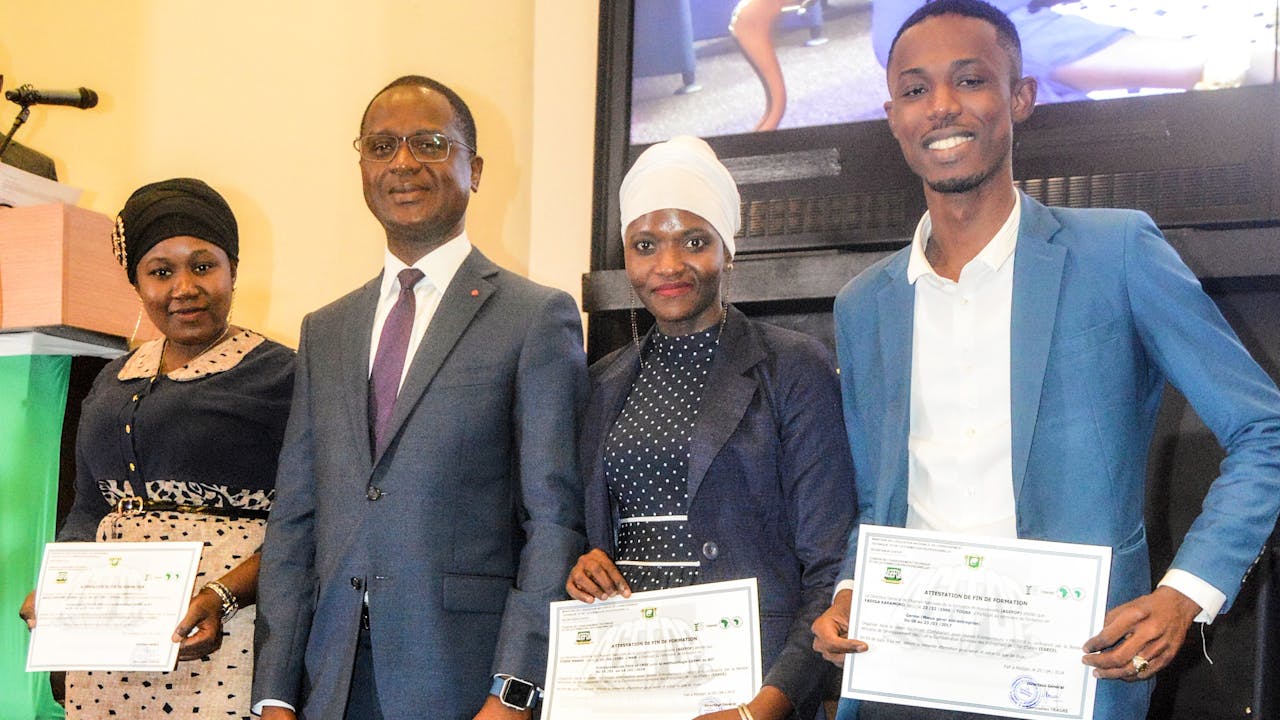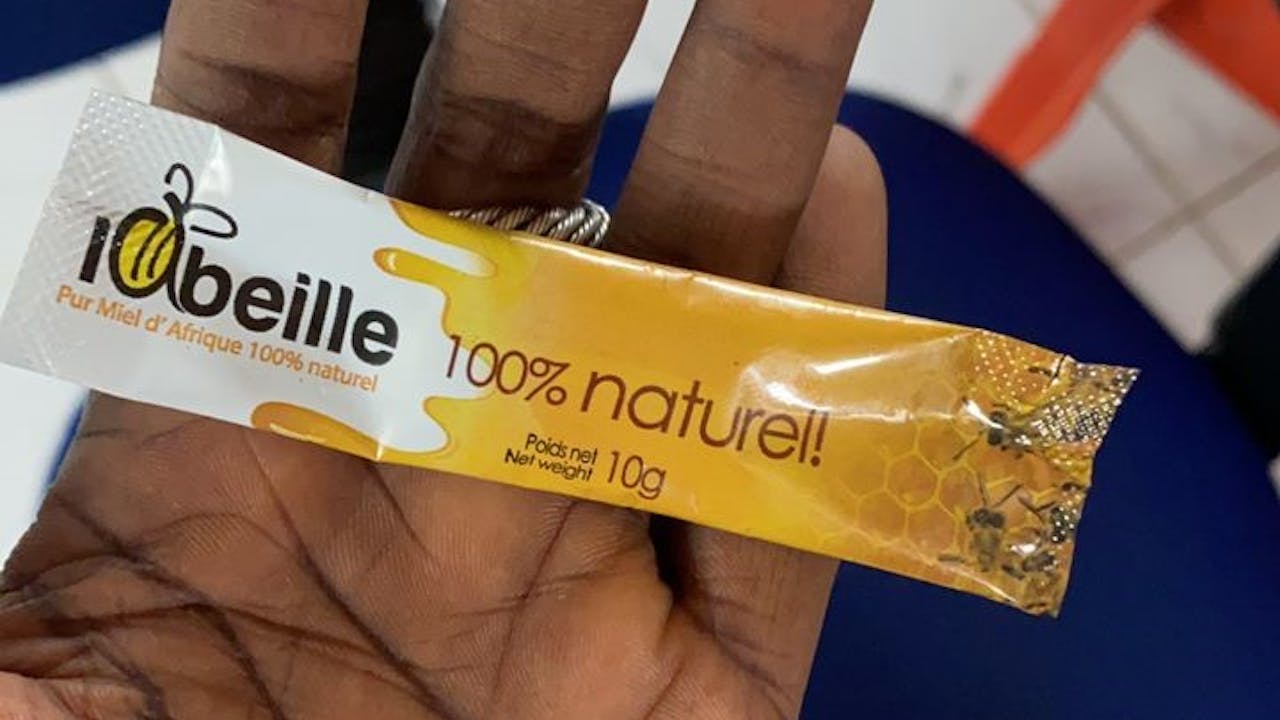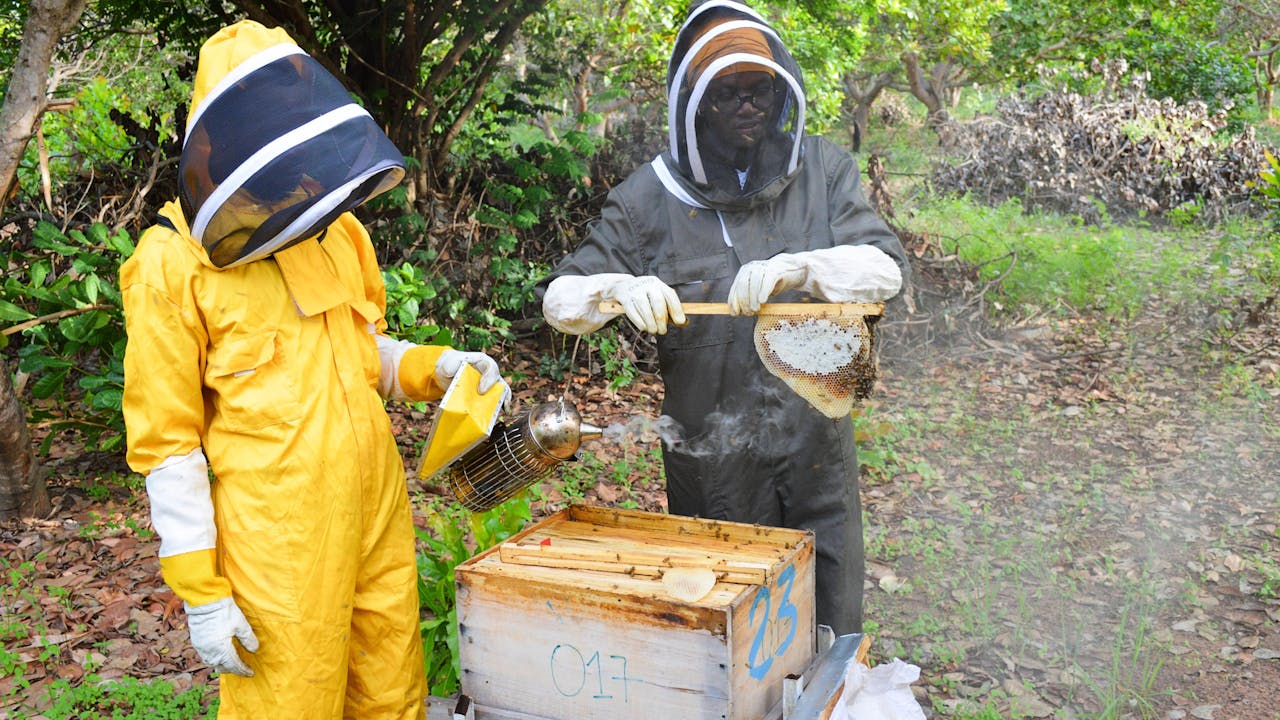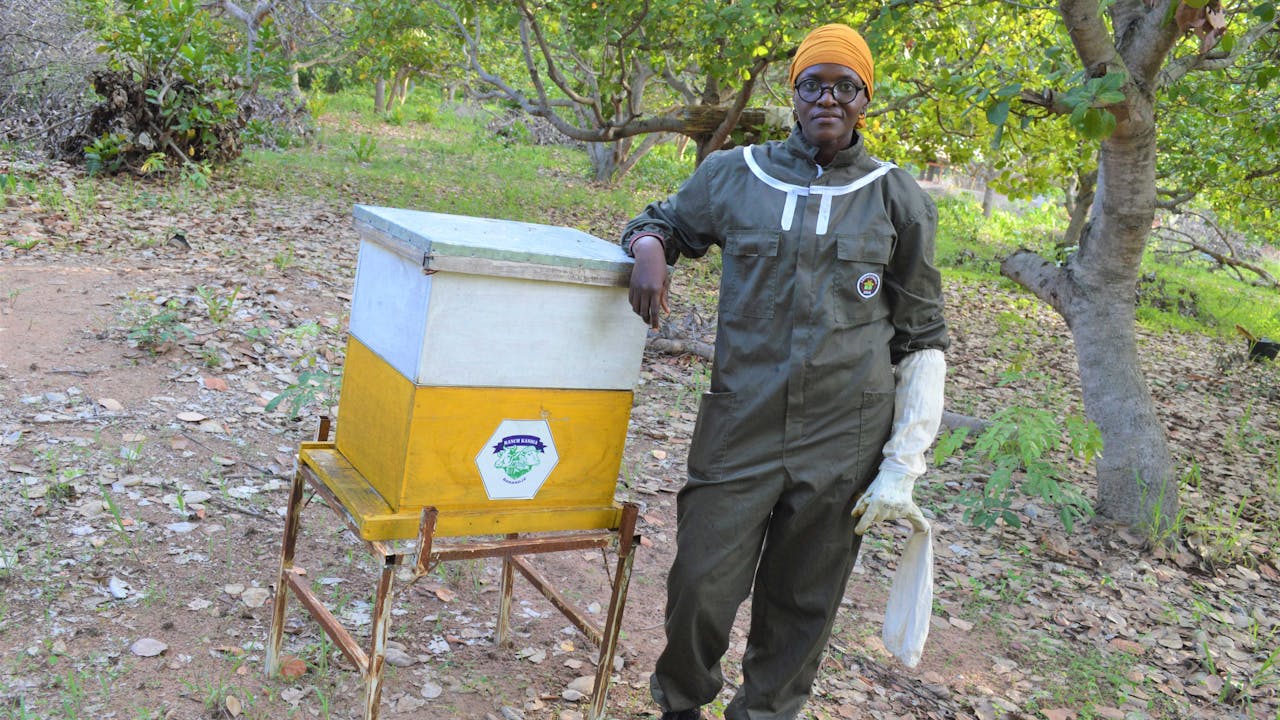I was one of the sacrificed generation. Growing up I was a good student and dreamed of becoming a pilot. I was the first person in my family in Côte d’Ivoire to pass my high school baccalaureate. But by the time we finished our high school exams in 2004, the Ivorian crisis had already started.
I come from the Kabadougou region in the north of Côte d’Ivoire.
Because we came from a besieged area, the national armed forces, the FANCI, called us rebel students. I was top of my class and was in line to apply to the Félix Houphouët-Boigny National Polytechnic Institute. The FANCI came and pulled some of us out of the ranks, telling us that we weren’t fit to apply for the institution.
I then decided I wanted to leave Côte d’Ivoire and go to Canada, but I was even banned from immigrating by the authorities. Coming from a poor family, we couldn’t overcome the obstacles.
In the end I did two post-secondary national professional degrees called a “Brevet de technicien supérieur” (BTS), one in farm management and one at a livestock school. I chose to go into agriculture, as it was the field I knew best. I was already familiar with the livestock environment; my father was a poultry farmer and my mother a beekeeper.
When I graduated in 2009 the financial crisis and unemployment was at its peak. I was applying for jobs but there were no real opportunities.

When I graduated in 2009, the financial crisis and unemployment was at its peak. I was applying for jobs but there were no real opportunities. I did a bit of everything. For a while I ran a cybercafé. I also provided advice and guidance services on poultry and rabbit breeding.
Then an entrepreneur friend of mine, who knew that I had entrepreneurial ambitions, told me about the International Labour Organization’s (ILO), Start and Improve your Business (SIYB) training course. It teaches how to structure your business and organise your ideas. I applied and was accepted onto the course.

This is the day I received the SIYB training certificate in Abidjan in 2017.
© CGECII had lots of ideas. I wanted to do a thousand and one things at once. Taking part in SIYB helped me to focus and I decided to develop a business selling honey.
What I liked most about the SIYB course was that they helped us to put our ideas on paper. They made us do practical market research. They didn't just give us theoretical training, they put us to work. We did everything we needed to do on a practical level first. When I left SIYB, I had a finished project including a business plan.
In my village, people had honey they didn't know what to do with and in Abidjan, people were looking for good honey but didn't know where to get it. I said to myself: "Why not be the bridge between those people?”

One of the things we learnt during the SIYB training course was that you really need to know about your area of business as much as possible and minimise the risks. I had training in animal husbandry and through my mother I had experience in beekeeping, which I was able to capitalise on.
Every time I returned to my village, I saw that people there had honey they didn't know what to do with. Meanwhile, here in Abidjan, people were looking for really good honey but didn't know where to get it.
I said to myself: "Why not be the bridge between these people? “
At the time there was also a trend to sell everything in stick packs: toothpaste, milk powder, mayonnaise, even a meal. It gave me the idea to make honey available in stick packs too. That way, people can use it everywhere and in very specific quantities. And it's not messy either, because that's another problem when you're carrying honey around.

My honey brand is called labeille and this is the stick pack I sell my honey in.
© Cissé MabréWith my business plan, CFA 11 million (US$18,350) in savings and CFA 100 million (US$167 000) in investment funding, I felt ready to set up my project.
However, when I first started my honey business, it was very difficult. My family didn’t support me at all. But I have learned as an entrepreneur that when you believe in something, you mustn’t give up on your dreams for other people. You have to create your own story.
It’s been five years now of running the business. We’ve won several awards, including the CGECI Female Entrepreneurship Award in 2019. We currently distribute to all the supermarkets in Abidjan and elsewhere in Côte d’Ivoire. We've also started to attract new customers, such as pharmacies and hotels. We also work with restaurant-cafés, which offer our stick packs for people who want honey instead of sugar.
The biggest challenge we face is supply, so I decided to go into production. We currently have 100 hives. Our aim is to have between 1500 and 2000 hives by the end of 2025.
In the long term I want to be certified and to have labeille honey on supermarket shelves in Europe and in the Gulf region, the way that European honeys are on our shelves in Abidjan.

I’ve started producing my own honey to increase supplies. I discovered beekeeping through my mother and was always curious about how things worked.
© Doumbia YoussoufWhen I was a child, adventure and travelling fascinated me. It made me dream of being a pilot. Entrepreneurship is also a journey full of adventure. I’ve got to know people, I’ve learnt how to tackle problems, and now I manage to live decently. For me, that's good.
When we started out, honey was bought at CFA 500 (83 US cents) a litre from farmers. Today, with the added value and the spotlight we've put on honey, people are now buying a litre of honey at CFA 1,500 (US$2.49). In the past, farmers found it difficult to sell their produce. Now they have tripled the selling price of their raw material,
I'm very proud to know that I’ve made a contribution to this. There's a quote by Ralph Emerson that I've always liked, ever since I was a student. He said: "Do not go where the path may lead, go instead where there is no path and leave a trail." I think that's what I'm doing now and it makes me really proud.

I’m proud of what the business has achieved and I’m looking forward to increasing production with our beehives.
© Doumbia Youssouf